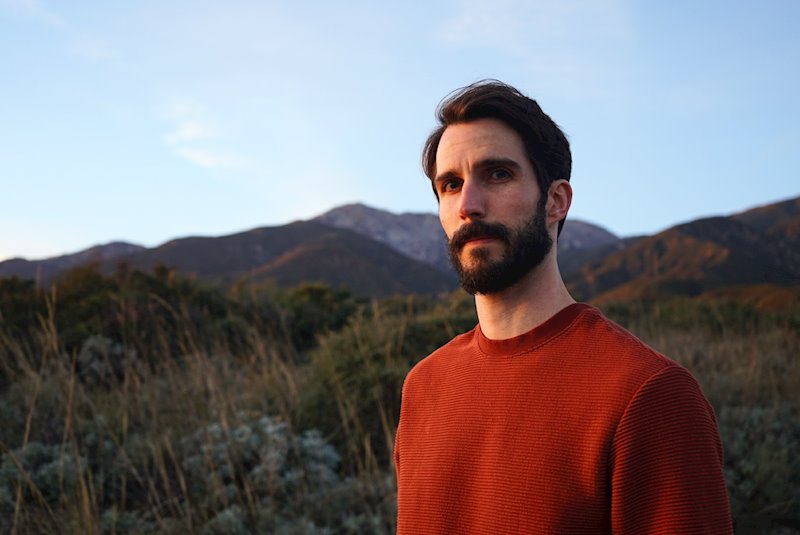Today, the Missourian musician Tyler Durham is an award-winning film composer, who has worked as part of the sound department for clients like Disney, Netflix, Warner Bros., and Paramount, on projects such as Fantastic Beasts: The Crimes of Grindelwald, Jungle Cruise, Red Sparrow, The Lost City, and Terrence Malick’s A Hidden Life.
“I was in a family that always played music,” Tyler tells Post-Burnout of his early exposure to music. “We were sort of forced to go into piano when we were kids, which, ultimately, turned out to be a good thing. But, yeah, it’s just always been a part of the family. I grew up listening to a lot of classic rock and also playing in the church that I was involved in.”
With a musical knowledge and interest established, Tyler developed an appreciation for an oft-overlooked expression: the musical compositions of old-school video games. He explains, “You go back to these old NES games and things – and I know it’s all 8-bit production – but some of the writing, you’re like, ‘Wait, why are these harmonies so good?! Why are these melodies so catchy?’ It’s so stunning when you look at it.”
It was actually this combination of love of video game soundtracks and his background which made Tyler discover the power of orchestral music. “[I got] to this point in high school where I listened to this orchestra, called the Eminence [Symphony] Orchestra, that my brother introduced me to, that they were playing game soundtracks and all this kind of stuff,” he says. “And it was really the first time that I… – I mean, obviously, I had heard orchestral music and all this – but it was the first time where I was just taken away by it.”
With this inspiration, Tyler autodidactically learnt to write compositions. “I’ve always loved entertainment, and films, and video games, and all that, so I’ve always been attracted to those mediums,” he says of his interest. “Once I heard the kind of sound that came from cinematic…or, you know, I had heard cinematic music and film scores, but it was really once I started diving into it that I was just like, ‘I love this, and I just want to learn more.’
“So, once I started absorbing that content, I just said, ‘I’m going to download YouTube videos and scenes from movies that I like, and just start scoring ‘em,’ and, honestly, it really was just a hobby; it was anything I could get my hands on. [I was working with] programs that were not designed to score films, and I would just be like, ‘I’m going to make it work!’ [Laughs] That’s really where it came from, of just, once I started understanding how fun it is and […] the challenge of writing behind for picture, I just couldn’t stop.”

Courtesy of Reybee, Inc.
After high school, Tyler formally studied his hobby. “My undergrad was in Composition in Missouri State [University], and then I went to Columbia College Chicago, and that was when I got a master’s in Film Scoring,” he explains. “So, that was definitely a lot of when I actually learnt more about film scoring specifically, but then I was fortunate enough, after I graduated, I came out to L.A. and I landed a job with James Newton Howard – who is one of my film music idols, growing up – and that was the most incredible experience, in terms of learning at the highest level of […] just the whole process of film scoring.”
This kickstarted Tyler’s professional career which would eventuate into the opportunities that were helpfully listed in this article’s opening paragraph. Whilst working with studios and directors on film projects, Tyler saw his position as aiding in what it was that they wanted from the score at any given time, but an interest to start a self-directed project that allowed him to dictate narratives through music was bubbling up inside of him.
As such, LIMINA – Tyler’s electronic compositional project – was born. “As a film composer, I spend most of my time serving the picture – and, again, I get to bring in my creativity to that, and I love that – but there is, obviously, the element that I’m staying true to what the director wants, staying true to what the picture needs, so there are, obviously, some confines there.
“And I talk about, and I think it’s important as a film composer – because you’re often serving someone else’s vision – that it is important to maintain your, what I call, a homebase for your music, of, ‘What is authentic to you, in this moment?’ ‘What is speaking to you, musically?’, and to be able to explore that.
“So, LIMINA became a space for me to go, ‘This is what I actually want to say; this is the voice I want to bring forward,’ not for anybody else but for me, you know? And that’s really where it was born from and the inception of it, was just saying, ‘How can I just explore my own artistry outside of a narrative?’”
LIMINA’s first release was the single ‘I. Muse’ in July 2021, shortly followed by their debut EP, Hidden Spaces, the following month, revealing the “I” from the single’s title to be a Roman numeral, as each of the six tracks had the numbers I-VI presented before their respective title in the tracklist. The EP was quite ethereal and other-worldly in its sound.
Next Tuesday, at the time of publication, LIMINA will release their debut full-length album, Coming Home. For this album, Tyler travelled nearly 9,000 kilometers east to record with the London Philharmonic Orchestra at the eponymous city’s AIR Studios. Compared to its predecessor, Coming Home is much more grounded, and Tyler credits riding the London Underground and the conversations he overheard for some of the album’s inspiration.
The reason for the album’s more grounded nature is due to the human drama and character studies being drawn by its compositions. As Tyler explains, “I’m very proud of this album, as I said, because I just feel it was channelling my actual homebase, and it’s something that I want to continue to explore; it’s a sound I really have a lot of passion for, and there’s so much play room within that.
“I’m very proud of this album and really happy with how it turned out, and especially getting to record in AIR Studios, which is a dream of mine. And, yeah, I just plan to keep pushing as long as I can in this space. And I think, in terms of the album feeling more grounded but also having a little more separation between the tracks, I found just in the story that I had crafted for the album, which is this woman who is estranged from her family and is trying to get back to make amends, but, you know, all the turmoil, all the struggle, all of the anxiety, anger that comes with that tension, and I wanted each track to comment on all those expressions and all those kinds of feelings.”
LIMINA’s debut album, Coming Home, is out this Tuesday, the 23rd. You can preorder a copy on their Bandcamp. You can keep up to date with Tyler’s music and social media accounts on his website.
Tune into POSTBURNOUT.COM Interviews… tonight at 21:00 (IST) on YouTube, Spotify, Apple Podcasts, and Amazon Music Podcasts to hear this discussion in full, where we expand on all of the topics discussed, as well as Tyler’s advice for those wanting to get into his profession, his opinion on “temp love,” his experiences working on film soundtracks, his plans for the rest of the year, and much more.

Aaron Kavanagh is the Founder and Editor-in-Chief of Post-Burnout. His writing can also be found in the Irish Daily Star, Buzz.ie, Totally Dublin, The GOO, Headstuff, New Noise Magazine, XS Noize, DSCVRD and more.

 POST-BURNOUT
POST-BURNOUT